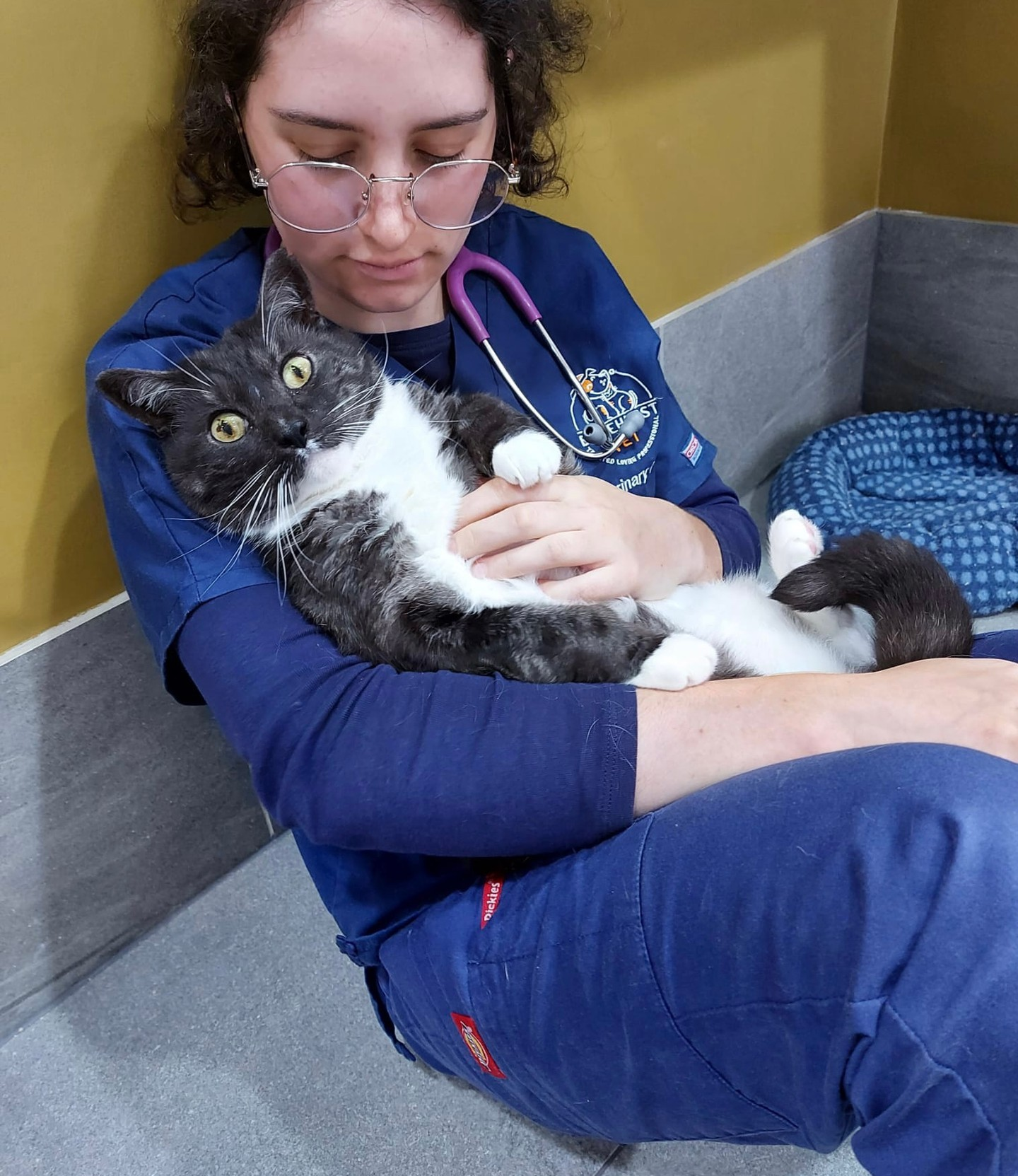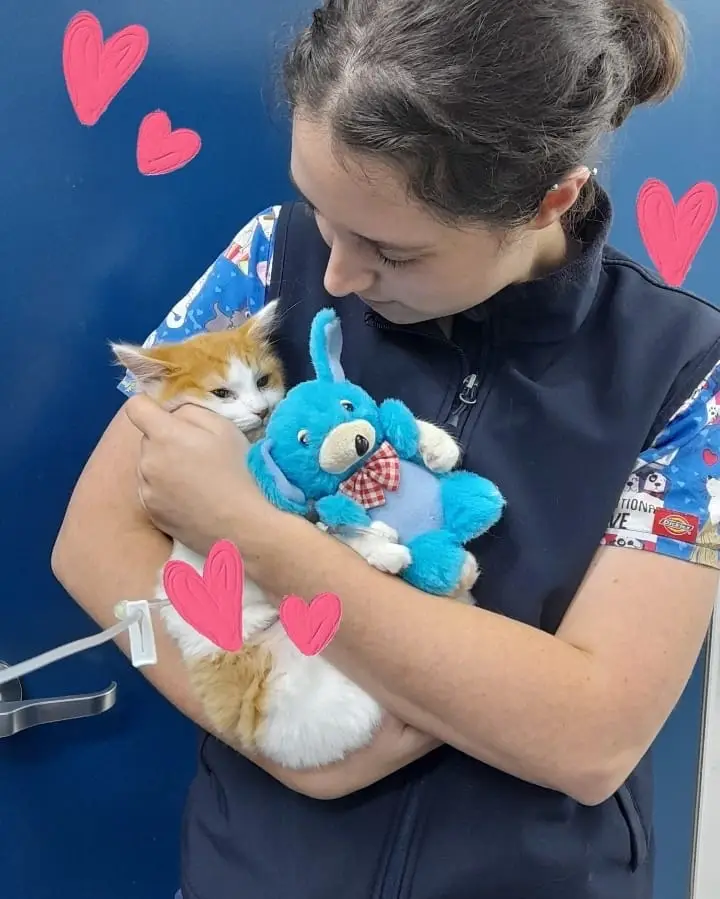Cats are one of the most popular pets in the world, known for their unique personalities and behaviours. They can be entertaining, affectionate, and independent all at once. As a cat owner, you may have noticed your furry friend exhibiting strange behaviours when exposed to music. Some cats seem to completely ignore it while others seem to enjoy it.
This begs the question – does my cat like music? In this article, we will explore the relationship between cats and music, including scientific research on how they perceive sound and react to different types of music. We will also discuss what kind of musical sounds might appeal to your feline companion.
What is Music to Cats?
Music is a complex auditory experience for humans, but what about cats? While there is no definitive answer to this question, we can look at how cats perceive sound and their natural behaviours to get an idea. Cats have a much wider range of hearing than humans, which means they can pick up on higher frequencies as well as lower ones. This may influence their reaction to music, as some genres have more high-pitched sounds while others are more bass-heavy.
Additionally, cats have evolved to be highly sensitive to sound in order to survive in the wild. They rely on their sense of hearing to detect prey and predators. This heightened sensitivity may also play a role in how they respond to music. Certain sounds in music may trigger their hunting instincts or make them feel uneasy if they resemble those of a potential threat.
How Cats React to Music
When it comes to cats and music, their reactions can vary greatly. Some may show no interest at all while others may exhibit signs of enjoyment or discomfort. This can depend on factors such as the type of music, volume, and even the individual cat’s personality.
Studies have shown that classical music tends to be more calming for cats, possibly due to its slower tempo and lack of sudden loud noises. Interestingly, some cats have also been observed showing a preference for music composed specifically for felines with sounds resembling purring and bird chirping.
On the other hand, heavy metal or rock music may cause agitation in cats due to its fast pace and loud, distorted sounds. They may exhibit signs of stress or even try to escape the area.
Cats seem to have individual preferences when it comes to music just like humans do. It’s important for pet owners to pay attention to their cat’s reactions and adjust accordingly. As with any new experience, it’s best to introduce music slowly and in short intervals to see how your cat responds.
Signs that Your Cat May Like Music

So, how can you tell if your cat is enjoying the music? Some common signs include:
Relaxed body language
One of the most telling signs that your cat is enjoying the music is relaxed body language. When a cat feels comfortable and at ease, their body will often reflect this state. Look for a stretched-out posture, with paws extended and the cat lying on its side or belly up.
Their ears will be in a neutral position, not flattened or twitching, and their eyes may be half-closed or even fully closed as they relax. A softly swishing or still tail also indicates contentment. If your cat is lounging near the music source without any signs of tension or distress, it’s a good indication that they are enjoying the auditory experience.
Observing these subtle cues can help you determine if your feline appropriate tone friend is reacting positively to the music you play.
Purring or kneading
Purring and kneading are both behaviours that cats exhibit when they are content and relaxed. Purring is often associated with feelings of happiness, while kneading is a natural instinct from kittenhood when they would knead their mother’s belly to stimulate milk flow.
If your cat begins purring or kneading while listening to music, it can be a sign that they are enjoying the experience and feeling calm and comfortable. Plus, the sound of their purring can add a soothing background noise to enhance your own listening experience!
Rubbing against speakers or legs
Cats have scent glands on their faces and bodies that they use to mark their territory and show affection. If your cat is rubbing against the speakers or your legs while music is playing, it could be a way for them to claim the area as theirs or show appreciation for the pleasant sounds.
This behaviour may also indicate that your cat associates positive feelings with the music and wants to express this through physical contact. It’s important not to discourage this behaviour as it can strengthen the bond between you and your furry companion.
Additionally, if your cat is rubbing against the speakers, it could be a sign that they are enjoying the vibrations and soundwaves produced by the music.
Calmer behaviour than usual
Some cats may exhibit a change in behaviour when exposed to music they enjoy. If your typically energetic cat becomes more relaxed and calm while listening to music, it could be a sign that they are enjoying the auditory experience.
This can be especially beneficial for cats with anxiety or high levels of stress as calming music can help reduce their feelings of tension and promote relaxation.
Falling asleep while listening to music
Just like humans, cats also have sleeping preferences. Some may prefer complete silence while others enjoy background noise. If your cat falls asleep while listening to music, it’s a clear indication that they find the sounds soothing and calming enough to drift off into slumber.
Pay attention to what type of music or specific songs seem to elicit this response from your cat. You can then create a playlist of their favourites for them to listen to when they need some downtime.
These are just a few signs that your cat may be enjoying the music playing. Remember, every cat is unique and may have different reactions to different types of music. Observe their behaviour and adjust accordingly to create a harmonious auditory experience for both you and your feline friend.
Does Music Have a Positive Effect on Cats?
The relationship between cats and music is a complex one, with varying reactions and preferences. However, research has shown that music can have positive effects on cats.
Studies have found that playing calming music for cats can help reduce stress levels, anxiety, and even promote healing in cases of illness or injury. This is because soothing music has been found to lower heart rate and blood pressure, similar to the effect it has on humans.
Additionally, some experts believe that music can also help improve the bond between cats and their owners. As cats are highly sensitive to sound vibrations, playing music together can create a shared experience that strengthens their connection.
However, it’s important to note that not all types of music have a positive effect on cats. As mentioned earlier, loud and fast-paced music can cause agitation or stress in felines. It’s best to stick to calming, classical or ambient music when creating a playlist for your cat.
Mistakes to Avoid When Introducing Music to Your Cat
While music can have a positive effect on cats, there are some mistakes that pet owners should avoid when introducing their feline friends to this auditory experience. Here are a few to keep in mind:
- Playing loud or fast-paced music: As mentioned earlier, this type of music can cause stress and agitation in cats. Avoid playing music with high volumes or heavy bass. Additionally, avoid music with sudden changes in tempo or genre.
- Leaving music on for long periods of time: Cats are naturally sensitive to sound and can become overwhelmed if exposed to constant noise for extended periods. It’s important to give them breaks from the music and not leave it playing all day.
- Forcing your cat to listen to music: Just like humans, cats have their own preferences when it comes to music. Don’t force your cat to listen if they seem uninterested or uncomfortable.
- Not paying attention to your cat’s behaviour: It’s crucial to observe your cat’s reactions and adjust accordingly. If they seem agitated or uneasy, turn off the music and try a different type of sound.
- Not considering the volume and type of speakers: Cats have sensitive hearing, so it’s important to keep the volume at a level that won’t cause discomfort. Additionally, consider the direction and location of your speakers as cats may be startled by sudden noises coming from behind or above them.
By avoiding these mistakes, you can ensure a positive and enjoyable auditory experience for both you and your feline friend. Remember to always prioritise your cat’s comfort and preferences when introducing music into their environment.
Contact Blakehurst Vet For Your Pet’s Health Needs
At Blakehurst Vet, your pet’s health and well-being is our top priority. We are a team of passionate and experienced veterinarians who are dedicated to providing the best care for your furry family member. Our modern facility offers a spacious and calming environment for your pet’s comfort.
We offer a wide range of services including puppy play, cat hotel, dental care, and more. Our team works hard to provide tailored, one-on-one care for each pet that comes through our doors. We also prioritise same-day appointments for urgent matters.
Our clinic is equipped with state-of-the-art equipment to diagnose and treat any medical issues your pet may have.
At Blakehurst Veti, we also believe in giving back to our community by supporting local organisations and being proud members of the Sutherland Shire vet community. Contact us today to schedule your pet’s appointment or simply stop by our spacious reception area to see why we are trusted and loved by pet owners in the area.
FAQs
Do cats like music?
Yes, cats like music, but not all human music. Most cats prefer cat specific music or species appropriate music designed to cater to their hearing range and preferences. Cat lovers often find that playing cat music can have a calming effect on their pets.
What is cat specific music?
Cat specific music, also known as species specific music, is composed to match the hearing sensitivities and natural preferences of cats. Unlike human love music, cat music often incorporates sounds that mimic purring or bird chirps.
Can I play music from the National Symphony Orchestra for my cat?
While you can play music from the National Symphony Orchestra for your cat, it may not have the same appeal as species specific music. Cats tend to prefer cat music over human music. However, some cat lovers have found that certain classical pieces can be soothing for their pets.
Do most cats prefer certain types of music?
Most cats tend to prefer species appropriate music over traditional human music.
Conclusion
In conclusion, music can have a positive effect on cats, promoting relaxation and strengthening the bond between them and their owners. However, it’s crucial to pay attention to your cat’s preferences and behaviour when introducing music into their environment. If done correctly, music can be a beneficial addition to your cat’s daily routine.
Contact Blakehurst Vet for all of your pet’s health needs and join our community of satisfied pet owners in the Sutherland Shire area. So next time you put on some tunes, don’t forget your furry companion may just want to join in on the fun too!

